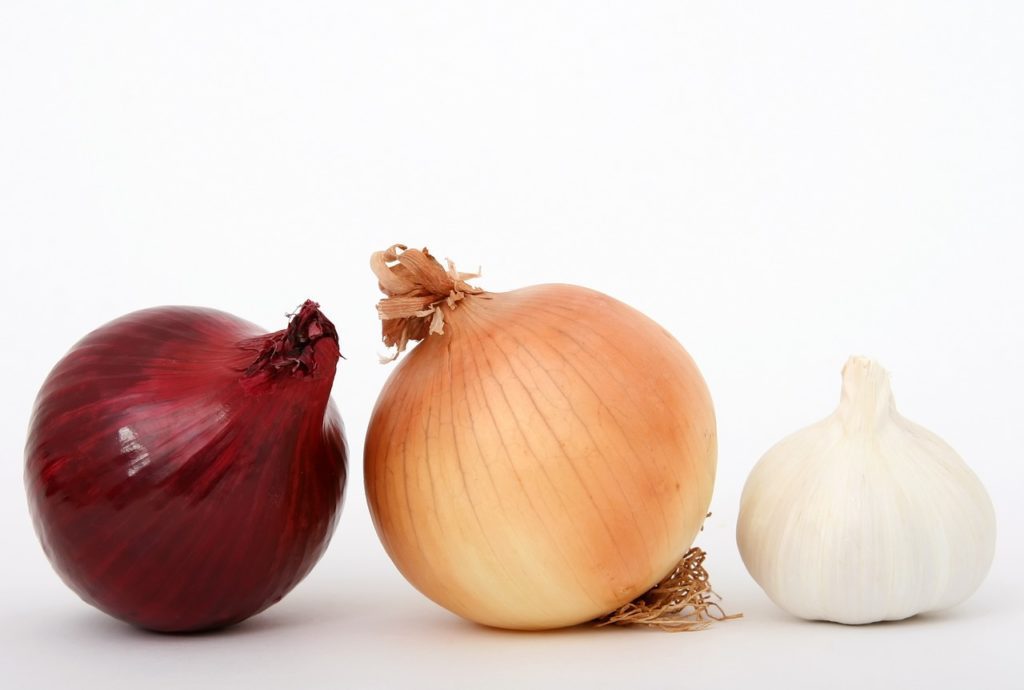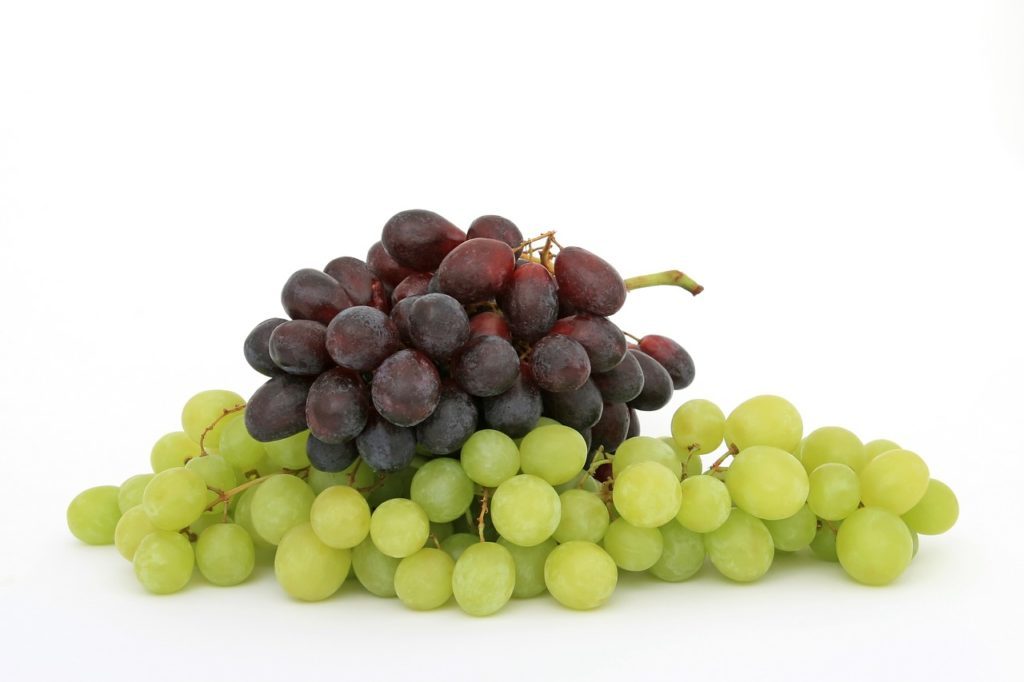It can be tempting to give your pets human food as an extra special treat. Before you do, it’s important to consider a few things. Many human foods are toxic to animals! If you suspect that your pet has ingested a toxin or toxic food, contact your veterinarian immediately. It is crucial to inform your veterinarian right away as typically there is a short window of time to begin treatment. Do not induce vomiting, or partake in any home remedies without discussing with your veterinarian first!
If you would like to feed your pet human food, consider speaking with your veterinarian first. That way you know exactly what you can and cannot feed. Some common human foods that are toxic to pets are below.
Table of Contents
List of Human Foods That Are Toxic To Animals

- Onion
- Garlic
- Macadamia Nuts
- Chocolate
- Grapes
- Raisins
- Caffeine
- Xylitol
- High Fat Foods
- Chicken bones
- Walnuts
- Alcohol
- Mushrooms
- Composted/Mouldy Food
Onions & Garlic
Onion & garlic toxicity is often referred to as Allium toxicity, as they are of the allium genus. Onion and garlic equivalents, such as powders, are also toxic! Garlic is more toxic than an onion. Cats are especially susceptible to these toxins! The toxic components of these foods are a variety of sulfur-containing oxidants. These toxins are present in the food in its natural form, and/or produced from preparing them (cutting, and cooking). The mechanism of toxicity is hemolysis of red blood cells. This means that the red blood cells are being destroyed. Any amount of ingestion of these foods will cause hemolysis. The degree to which hemolysis occurs depends on if the destruction exceeds the production of red blood cells.
Typically, clinical signs appear within 24-48hrs. But, signs can be delayed for up to 7 days post ingestion!
Clinical signs are not limited to but may include:
depression, decreased appetite increased heart rate, weakness, and red-brown urine.
Important Notes:
- Garlic is more toxic than onion
- Cats are more susceptible to allium toxicity
- Allium can be in baby food- so avoid feeding to pets!
Grape & Raisin Toxicity

While these may seem like a great snack for your pet- they are NOT! Grapes and raisins are very poisonous to pets. A result of ingestion is acute kidney failure. The specific toxin(s) within these foods are unknown. Moreover, the exact toxic dose is unknown- but it is typically a very small dose that can induce toxicosis. Clinical signs typically arise within a few hours of ingestion, but some symptoms may be more delayed.
Clinical signs are not limited to but may include:
Vomiting, drooling, lethargy (tired), ataxia (wobbly gait/walk), weakness, abdominal pain and increased urination and thirst
Methylxanthine Toxicity (Chocolate, Coffee, Tea)

While chocolate is delicious for us to eat, it is very poisonous to pets! This is an extra dangerous toxin because it is one that dogs like to try to eat! The toxic component in these foods is methylxanthine. This toxin is in a wide variety of food products and in human medication. This toxin negatively affects the heart, skeletal muscle, and the central nervous system.
Clinical signs are not limited to but may include:
restlessness, diarrhea, increased urination, seizures, vomiting, tremors and heart arrhythmia
Important Notes:
- Cocoa powder and baking chocolate are the most toxic
- White chocolate is the least toxic
Alcohol Toxicity
While sharing a drink with your pet may sound cute, it is highly toxic to your pet. Alcohol(s) are depressants, meaning they negatively affect the central nervous system. Alcohol is in drinks, bread dough that contains yeast, fermented or rotting fruit (so keep your pet out of the compost!), antifreeze, etc.
Clinical signs are not limited to but may include:
Lethargy (tired), ataxia (wobbly gait/walk), increased urination and thirst, vomiting, disoriented, tremors, seizures and respiratory distress.
Macadamia Nuts
This might be a human food that typically wouldn’t cross your mind to feed your pet but they are in many things! They are in baked goods, candies, and cookies. The mechanism of toxicity is unknown. Clinical signs of toxicity appear within 3-24hrs.
Clinical signs are not limited to but may include:
Difficulty walking (ataxia), increased body temperature (hyperthermia), vomiting, and weakness.
Xylitol (artificial sweetener)
Xylitol is an artificial sweetener. It is an ingredient in some candy, toothpaste, and sugar-free gum. This toxin is very harmful to dogs as it causes a drastic increase in insulin release. This results in a very fast decrease in blood sugar. Which is very dangerous! This can happen in as quickly as 15-30 minutes!
Clinical signs are not limited to but may include:
Vomiting, lethargy (tired), weakness, ataxia (wobbly gait/walk), tremors and/or seizures
Diagnosing Toxicosis
For your veterinarian to diagnose and treat your pet they may recommend diagnostic tests. These can include; bloodwork, urine analysis, etc. They also rely heavily on the history that you provide to them! This means, that whatever information you have about what your pet may have ingested- the better! Your veterinarian is not there to judge you, so be sure to be as honest as possible. Clinical signs and history are key for appropriate diagnosis, so be sure to be as detailed as possible with your vet.
So You Think Your Pet Ate A Toxin, Now What?
If you suspect your pet has ingested a toxin it is important to contact your veterinarian immediately. The sooner your vet knows of the toxicity, the better equipped they are to help your pet. You can also reach out to the animal poison control line at (888) 426-4435 as they have trained veterinary toxicologists on staff!

